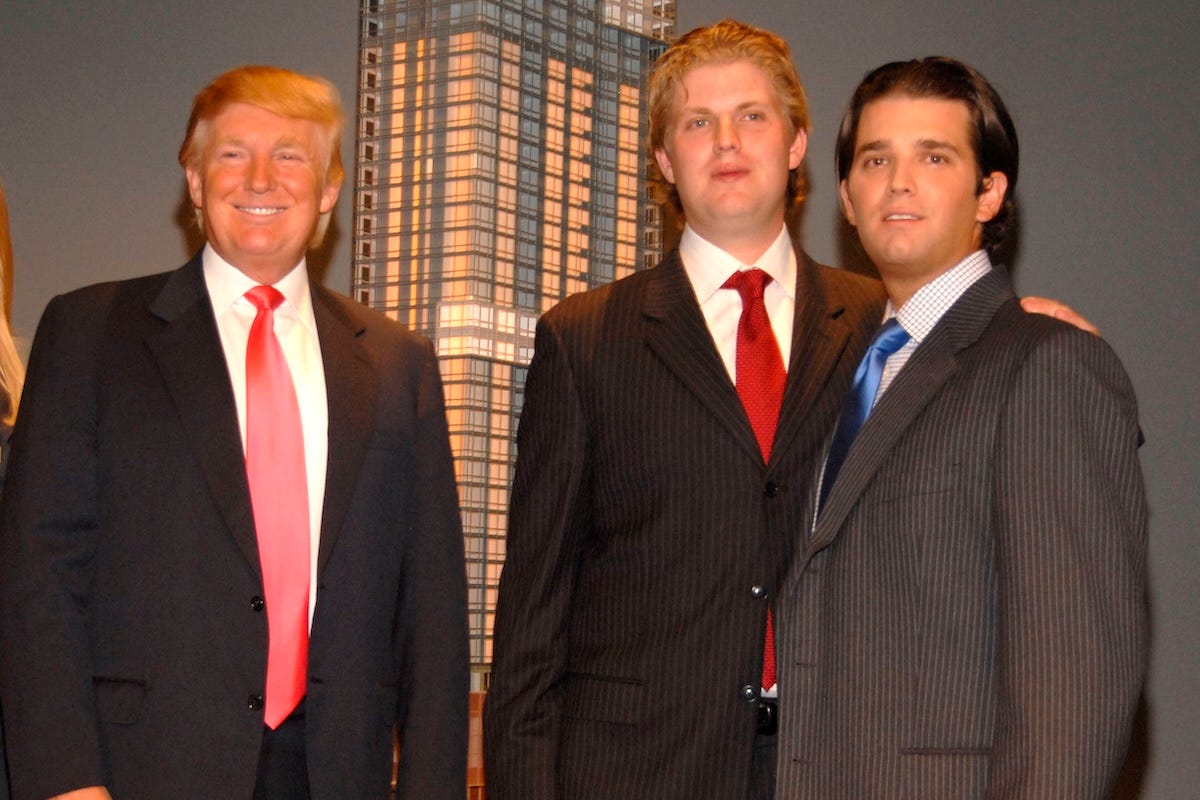I Figured Out How Donald Trump Thinks Trade Should Work
It's the only way to make sense of the nonsensical.
Dear politically active economists, and economically-minded wonks, pundits, and reporters.
This newsletter is addressed to you in particular, because while most of you know more about economics than I do, I’m better at crawling into Donald Trump’s brain than most of you are, and I’m here to help you become more effective teachers, communicators, and advisers.
For weeks, if not months and years now, you’ve been trying to square all of the nonsensical things Trump says about tariffs, along with his equally nonsensical trade policies, and make it cohere. What does it mean? What does he hope to achieve? What’s actually going on?
That necessarily takes you outside the field of traditional economics because the elements that might make Trump’s trade notions cohere are psychological, rather than economic. It’s like expecting a musician to make sense of the auditory output of a toddler mashing piano keys.
Trump describes the United States as a department store, or even “a super luxury store, a store that has the goods."
He believes his role is to “set the price” of the goods in this store.
He claims to view trade deficits as subsidies to the countries running the surplus.
He describes trade surpluses and tariffs as means of enriching the U.S.
He describes tariffs as both leverage (to get countries to cut better trade deals with us) and as permanent incentives (to convince manufacturers to set up shop in the United States), when, practically speaking, they can’t be both bargaining chip and industrial policy at the same time.
The conceptual errors abound—a stack of them, piled on one another—but either nobody’s managed to convince Trump he’s got it wrong, or nobody’s really tried. All we can do is guess as to what he’s really thinking. I’ve thus heard various analysts muse that Trump must be hostile to shopping—that perhaps he views paying for things as an inherent rip-off; that he’s obsessed with masculine trades like factory work; that his views are consistent, just stubbornly stuck in the past.
There are kernels of truth in these interpretations, I’ve played around with some of them myself. But they don’t individually explain all the misconceptions at once.
With apologies if everyone’s already steps ahead of me, and this is all widely understood, I think I’ve pieced together how Trump’s mind actually thinks of trade, and the importance of balanced trade relations, and the point of tariffs. It’s all completely wrong, but with a clear understanding of the model in his head, perhaps some right-wing economist or senator who knows his trade war is crazy might puzzle out a way to help Trump reconceive of trade in a more coherent way, so that he causes less long-run damage.
THE VAMPIRE AND THE COKEHEAD
Imagine two business owners, Don and Eric. Don sells coffins. Eric sells drugs. They operate across the street from one another. They are collegial. And they are each others’ customers.


